|
Books Should Be Free Loyal Books Free Public Domain Audiobooks & eBook Downloads |
|
|
Books Should Be Free Loyal Books Free Public Domain Audiobooks & eBook Downloads |
|
Poetry |
|---|
|
Book type:
Sort by:
View by:
|
By: Edmund Gosse (1849-1928) | |
|---|---|
 Victorian Songs Lyrics of the Affections and Nature
Victorian Songs Lyrics of the Affections and Nature
| |
 Some Diversions of a Man of Letters
Some Diversions of a Man of Letters
| |
By: Lord George Gordon Byron | |
|---|---|
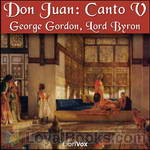 Don Juan, Canto V
Don Juan, Canto V
Juan, captured by Turkish pirates and sold into slavery is bought by a beautiful Princess as her toy-boy. Dressed as an odalisque, he is smuggled into the Sultan’s harem for a steamy assignation. Unbelievably, Byron’s publisher almost baulked at this feast of allusive irony, blasphemy (mild), calumny, scorn, lesse-majeste, cross-dressing, bestiality, assassination, circumcision and dwarf-tossing. This was the last Canto published by the stuffy John Murray (who had, however, made a tidy fortune on the earlier parts of the Epic)... | |
By: James Whitcomb Riley (1849-1916) | |
|---|---|
 A Defective Santa Claus
A Defective Santa Claus
| |
 Scrawl
Scrawl
James Whitcomb Riley was an American writer, poet, and best selling author, born in the town of Greenfield, Indiana. During his lifetime he was known as the "Hoosier Poet" and "Children's Poet" for his dialect works and his children's poetry respectively. His poems tended to be humorous or sentimental, and of the approximately one thousand poems that Riley authored, the majority are in dialect. | |
 An Old Sweetheart of Mine
An Old Sweetheart of Mine
| |
 In The Dark
In The Dark
James Whitcomb Riley was an American writer, poet, and best-selling author. During his lifetime he was known as the "Hoosier Poet" and "Children's Poet" for his dialect works and his children's poetry respectively. His poems tended to be humorous or sentimental, and of the approximately one thousand poems that Riley authored, the majority are in dialect. Riley began his career writing verses as a sign maker and submitting poetry to newspapers. Thanks in part to an endorsement from poet Henry Wadsworth Longfellow, he eventually earned successive jobs at Indiana newspaper publishers during the latter 1870s... | |
 Riley Love-Lyrics
Riley Love-Lyrics
| |
By: Henry Thayer Niles (1825-1901) | |
|---|---|
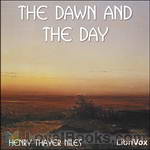 The Dawn and the Day
The Dawn and the Day
The Dawn and the Day, or, The Buddha and the Christ, Part 1 is a text similar to the epic poetry of Homer or, more accurately, classic Hindu texts, such as the Baghavad-Gita. | |
By: Walter Pater (1839-1894) | |
|---|---|
 Aesthetic Poetry
Aesthetic Poetry
| |
By: Horatio Alger, Jr. (1832-1899) | |
|---|---|
 Grand'ther Baldwin's Thanksgiving, with Other Ballads and Poems
Grand'ther Baldwin's Thanksgiving, with Other Ballads and Poems
Horatio Alger, better known for his juvenile fiction, also penned some great poetry. His Ballads, including the 8 war poems and his odes, are collected in this volume. | |
By: Robert Herrick (1591-1674) | |
|---|---|
 Delight in Disorder
Delight in Disorder
Robert Herrick (baptised 24 August 1591 – buried 15 October 1674[1]) was a 17th-century English lyric poet and cleric. He is best known for his book of poems, Hesperides. Herrick never married, and none of his love-poems seem to connect directly with any one beloved woman. He loved the richness of sensuality and the variety of life, and this is shown vividly in such poems as Cherry-ripe, Delight in Disorder and Upon Julia’s Clothes. | |
 Hag
Hag
A poem for Halloween by the 17th century English author Robert Herrick. His poems were not widely popular at the time they were published. His style was strongly influenced by Ben Jonson, by the classical Roman writers, and by the poems of the late Elizabethan era. This must have seemed quite old-fashioned to an audience whose tastes were tuned to the complexities of the metaphysical poets such as John Donne and Andrew Marvell. His works were rediscovered in the early nineteenth century, and have been regularly printed ever since. | |
By: Valmiki | |
|---|---|
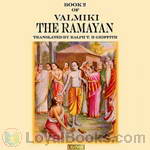 The Ramayana Book 2
The Ramayana Book 2
The Ramayana is an ancient Sanskrit epic. It is attributed to the Hindu sage Valmiki and forms an important part of the Hindu canon (smṛti). The Ramayana is one of the two great epics of India, the other being Mahabharata. It is the story of Rama, who emabrks on an epic journey followed by the fight with Ravana, the demon king who abducted Rama's wife, Sita. The epic depicts the duties of relationships, portraying ideal characters like the ideal servant, the ideal brother, the ideal wife and the ideal king. (Introduction by Om123) | |
By: William Butler Yeats (1865-1939) | |
|---|---|
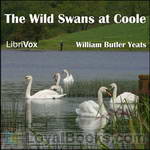 The Wild Swans at Coole
The Wild Swans at Coole
The Wild Swans at Coole is a collection of poems by William Butler Yeats, first published in 1917. It is also the name of a poem in that collection. The Wild Swans at Coole is in the "middle stage" of Yeats' writing and is concerned with, amongst other themes, Irish nationalism and the creation of an Irish aesthetic. | |
 In The Seven Woods Being Poems Chiefly of the Irish Heroic Age
In The Seven Woods Being Poems Chiefly of the Irish Heroic Age
| |
By: Romesh C Dutt | |
|---|---|
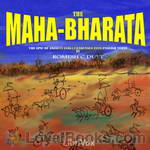 The Mahabharata by Vyasa: the epic of ancient India condensed into English verse
The Mahabharata by Vyasa: the epic of ancient India condensed into English verse
The Mahabharata is one of the two major Sanskrit epics of ancient India. Traditionally, the authorship of the Mahabharata is attributed to Vyasa. With more than 74,000 verses, Mahabharata is said to be the longest poem. Mahabharata tells the story of the epic Kurukshetra War and the fates of the cousin brothers Kauravas and the Pandavas. But more than that the Mahabharata contains much philosophical and devotional material, such as a discussion of the four "goals of life" or 'purusharthas'. The latter are enumerated as dharma (right action), artha (purpose), kama (pleasure), and moksha (liberation). (Introduction by om123) | |
By: Oliver Wendell Holmes | |
|---|---|
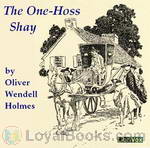 The One-Hoss Shay
The One-Hoss Shay
This is a small collection of whimsical poems by the American physician and author Oliver Wendell Holmes, Sr. "The Deacon's Masterpiece" describes the "logical" outcome of building an object (in this case, a two-wheeled carriage called a shay) that has no weak points. The economic term "one hoss shay," referring to a certain model of depreciation, derives its name from this poem. "How the Old Horse Won the Bet" is a lighthearted look at a horse race. Finally, "The Broomstick Train" is a wonderfully Halloween-y explanation of how an electric tram really works. | |
 The Professor at the Breakfast-Table
The Professor at the Breakfast-Table
| |
 The Poet at the Breakfast-Table
The Poet at the Breakfast-Table
| |
 Grandmother's Story of Bunker Hill Battle as She Saw it from the Belfry
Grandmother's Story of Bunker Hill Battle as She Saw it from the Belfry
| |
By: Hélène A. Guerber (1859-1929) | |
|---|---|
 The Book of the Epic
The Book of the Epic
| |
By: Randolph Caldecott (1846-1886) | |
|---|---|
 The Babes in the Wood One of R. Caldecott's Picture Books
The Babes in the Wood One of R. Caldecott's Picture Books
| |
 The Fox Jumps Over the Parson's Gate
The Fox Jumps Over the Parson's Gate
| |
By: Arthur Thomas Quiller-Couch (1863-1944) | |
|---|---|
 Bulchevy's Book of English Verse
Bulchevy's Book of English Verse
| |
 Green Bays. Verses and Parodies
Green Bays. Verses and Parodies
| |
By: George Wharton Edwards (1859-1950) | |
|---|---|
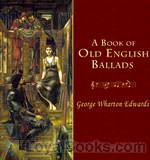 A Book of Old English Ballads
A Book of Old English Ballads
In this selection... the aim has been to bring within moderate compass a collection of these songs of the people which should fairly represent the range, the descriptive felicity, the dramatic power, and the genuine poetic feeling of a body of verse which is still, it is to be feared, unfamiliar to a large number of those to whom it would bring refreshment and delight. | |
By: Adam Mickiewicz (1798-1855) | |
|---|---|
 Sonnets from the Crimea
Sonnets from the Crimea
| |
By: The Gawain Poet | |
|---|---|
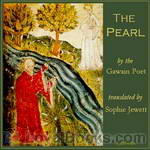 Pearl
Pearl
Written in the 14th century by the Gawain poet, 'Pearl' is an elegiac poem reflecting on the death of a young daughter, pictured as a pearl lost in a garden. It is considered a masterpiece of Middle English verse, incorporating both the older tradition of alliterative poetry as well as rhyme, centered around the development of an intricately structured image. Sophie Jewett's translation from the Northern dialect of the original renders much of the poem's liveliness and beauty accessible to modern readers, whilst encouraging them to pursue their reading further, to read the original itself.This recording is dedicated to the memory of Pearl Jean Shearman, 1914-2012. | |
By: Eleanor H. Porter (1868-1920) | |
|---|---|
 Mary Marie
Mary Marie
A charming 'coming of age' story about a young girl, Mary Marie, whose young life is thrown into turmoil as her parents divorce. As she leads two lives, she comes to realize that her parents still love one another, and engineers a reunion. In the end, we discover the long-lasting effect of this turmoil on the adult Mary Marie, and her own marriage." | |
By: Dora Sigerson Shorter (1866-1918) | |
|---|---|
 Old Maid (Shorter)
Old Maid (Shorter)
Dora Maria Sigerson Shorter was an Irish poet and sculptor, who after her marriage in 1895 wrote under the name Dora Sigerson Shorter. She was born in Dublin, Ireland, the daughter of George Sigerson, a surgeon and writer, and Hester (née Varian), also a writer. She was a major figure of the Irish Literary Revival, publishing many collections of poetry from 1893. Her friends included Katharine Tynan, Rose Kavanagh and Alice Furlong, writers and poets. | |
By: Andrew C. Bradley (1851-1935) | |
|---|---|
 Oxford Lectures on Poetry
Oxford Lectures on Poetry
| |
 Poetry for Poetry's Sake An Inaugural Lecture Delivered on June 5, 1901
Poetry for Poetry's Sake An Inaugural Lecture Delivered on June 5, 1901
| |
By: Alfred, Lord Tennyson (1809-1892) | |
|---|---|
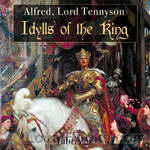 Idylls of the King
Idylls of the King
Idylls of the King, published between 1856 and 1885, is a cycle of twelve narrative poems by the English poet Alfred, Lord Tennyson which retells the legend of King Arthur, his knights, his love for Guinevere and her tragic betrayal of him, and the rise and fall of Arthur's kingdom. The whole work recounts Arthur's attempt and failure to lift up mankind and create a perfect kingdom, from his coming to power to his death at the hands of the traitor Mordred. Individual poems detail the deeds of various knights, including Lancelot, Geraint, Galahad, and Balin and Balan, and also Merlin and the Lady of the Lake. | |
 The Princess
The Princess
The Princess is a serio-comic blank verse narrative poem, written by Alfred Tennyson, published in 1847. The poem tells the story of an heroic princess who forswears the world of men and founds a women's university where men are forbidden to enter. The prince to whom she was betrothed in infancy enters the university with two friends, disguised as women students. They are discovered and flee, but eventually they fight a battle for the princess's hand. | |
By: Kate Greenaway (1846-1901) | |
|---|---|
 Mother Goose or the Old Nursery Rhymes
Mother Goose or the Old Nursery Rhymes
| |
By: Archibald Lampman (1861-1899) | |
|---|---|
 Winter Evening
Winter Evening
Archibald Lampman was a Canadian poet. "He has been described as 'the Canadian Keats;' and he is perhaps the most outstanding exponent of the Canadian school of nature poets." The Canadian Encyclopedia says that he is "generally considered the finest of Canada's late 19th-century poets in English." Lampman is classed as one of Canada's Confederation Poets, a group which also includes Charles G.D. Roberts, Bliss Carman, and Duncan Campbell Scott. | |
By: Gilbert Parker (1862-1932) | |
|---|---|
 A Lover's Diary
A Lover's Diary
| |
 Embers
Embers
| |
By: Eliza Cook (1818-1889) | |
|---|---|
 The Old Arm-Chair
The Old Arm-Chair
| |
By: Oliver Herford (1863-1935) | |
|---|---|
 Kitten's Garden of Verses
Kitten's Garden of Verses
The Kitten's Garden of Verses is a book of short poetry, modeled after Robert Louis Stevenson's A Child's Garden of Verses. Of course, the poems in this book are intended for kittens rather than children! | |
 An Alphabet of Celebrities
An Alphabet of Celebrities
| |
 The Rubáiyát of a Persian Kitten
The Rubáiyát of a Persian Kitten
| |
 The Smoker's Year Book
The Smoker's Year Book
| |
By: Burton Egbert Stevenson (1872-1962) | |
|---|---|
 The Home Book of Verse
The Home Book of Verse
| |
By: Kalidasa | |
|---|---|
 Translations of Shakuntala and Other Works
Translations of Shakuntala and Other Works
| |
By: Lord Alfred Tennyson (1809-1892) | |
|---|---|
 Beauties of Tennyson
Beauties of Tennyson
A collection of Tennyson's poetry : 1 The Brook - 00:16 2 Song from "Maud" - 1:20 3 A Farewell - 2:34 4 Song from “Maud” - 3:26 5 Break, Break, Break - 4:53 6 From “Locksley Hall”- 5:43 7 Song from “Maud” - 6:43 8 Song from “The Princess” - 7:43 9 Lillian - 8:37 10 Ring out, Wild Bells - 9:52 11 From “The Princess” - 11:27 12 Song From “The Princess” - 12:43 13 From “Enoch Arden” - 13:58 14 From “Enoch Arden” - 15:36 15 The Charge of the Light Brigade- 16:56 16 From “The May Queen” - 18:51 17 Song from “The Princess” - 19:36 18 From “Harold” - 20:14 19 From “The Revenge” - 21:28 (From Sam Stinsson) | |
By: Christina Georgina Rossetti (1830-1894) | |
|---|---|
 Goblin Market, The Prince's Progress, and Other Poems
Goblin Market, The Prince's Progress, and Other Poems
| |
By: John Dryden (1631-1700) | |
|---|---|
 Discourses on Satire and on Epic Poetry
Discourses on Satire and on Epic Poetry
| |
By: Henry Vaughan (1621-1695) | |
|---|---|
 Poems of Henry Vaughan, Silurist, Volume II
Poems of Henry Vaughan, Silurist, Volume II
MANUAL OF SURGERY, OXFORD MEDICAL PUBLICATIONSBY ALEXIS THOMSON, F.R.C.S.Ed.PREFACE TO SIXTH EDITION Much has happened since this Manual was last revised, and many surgical lessons have been learned in the hard school of war. Some may yet have to be unlearned, and others have but little bearing on the problems presented to the civilian surgeon. Save in its broadest principles, the surgery of warfare is a thing apart from the general surgery of civil life, and the exhaustive literature now available on every aspect of it makes it unnecessary that it should receive detailed consideration in a manual for students... | |
By: James Thomson (1834-1882) | |
|---|---|
 The City of Dreadful Night
The City of Dreadful Night
| |
By: William Wetmore Story (1819-1895) | |
|---|---|
 A Roman Lawyer in Jerusalem : First Century
A Roman Lawyer in Jerusalem : First Century
| |
By: Nathaniel Parker Willis (1806-1867) | |
|---|---|
 Declaration
Declaration
Nathaniel Parker Willis is also known as N. P. Willis. He was an American author, poet and editor who worked with several notable American writers including Edgar Allan Poe and Henry Wadsworth Longfellow. He became the highest-paid magazine writer of his day. | |